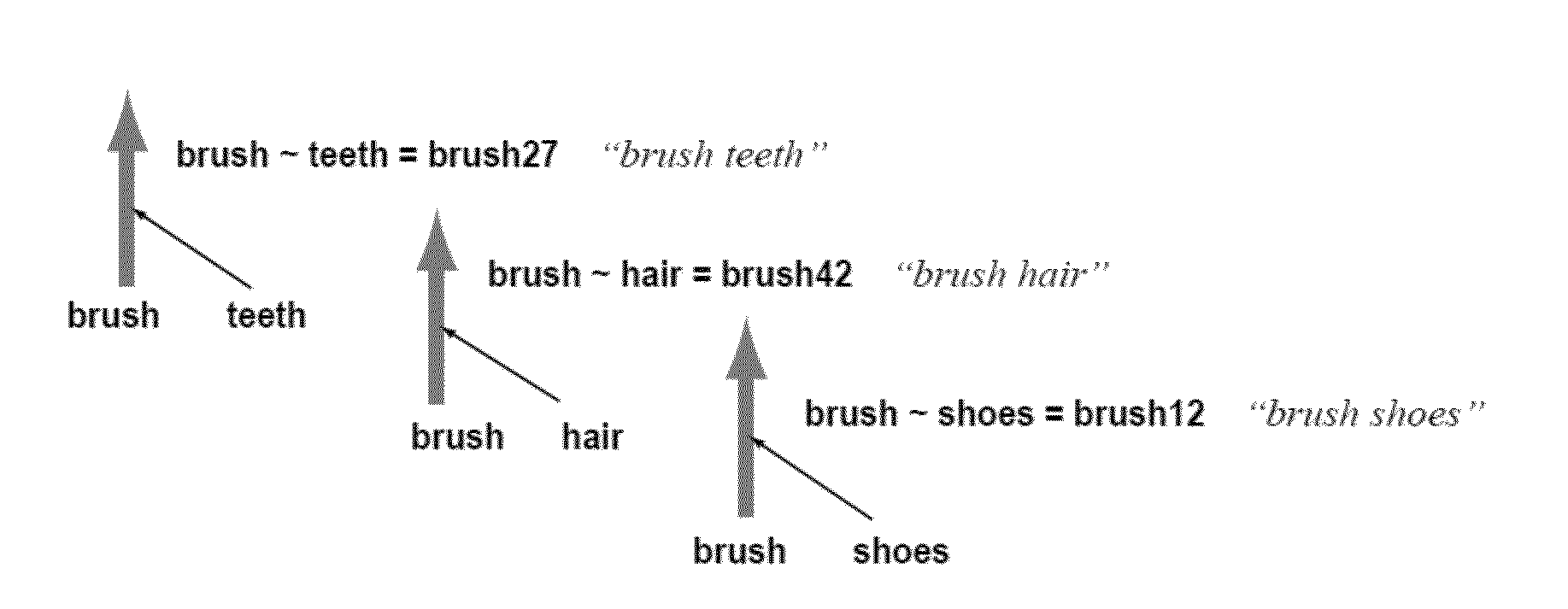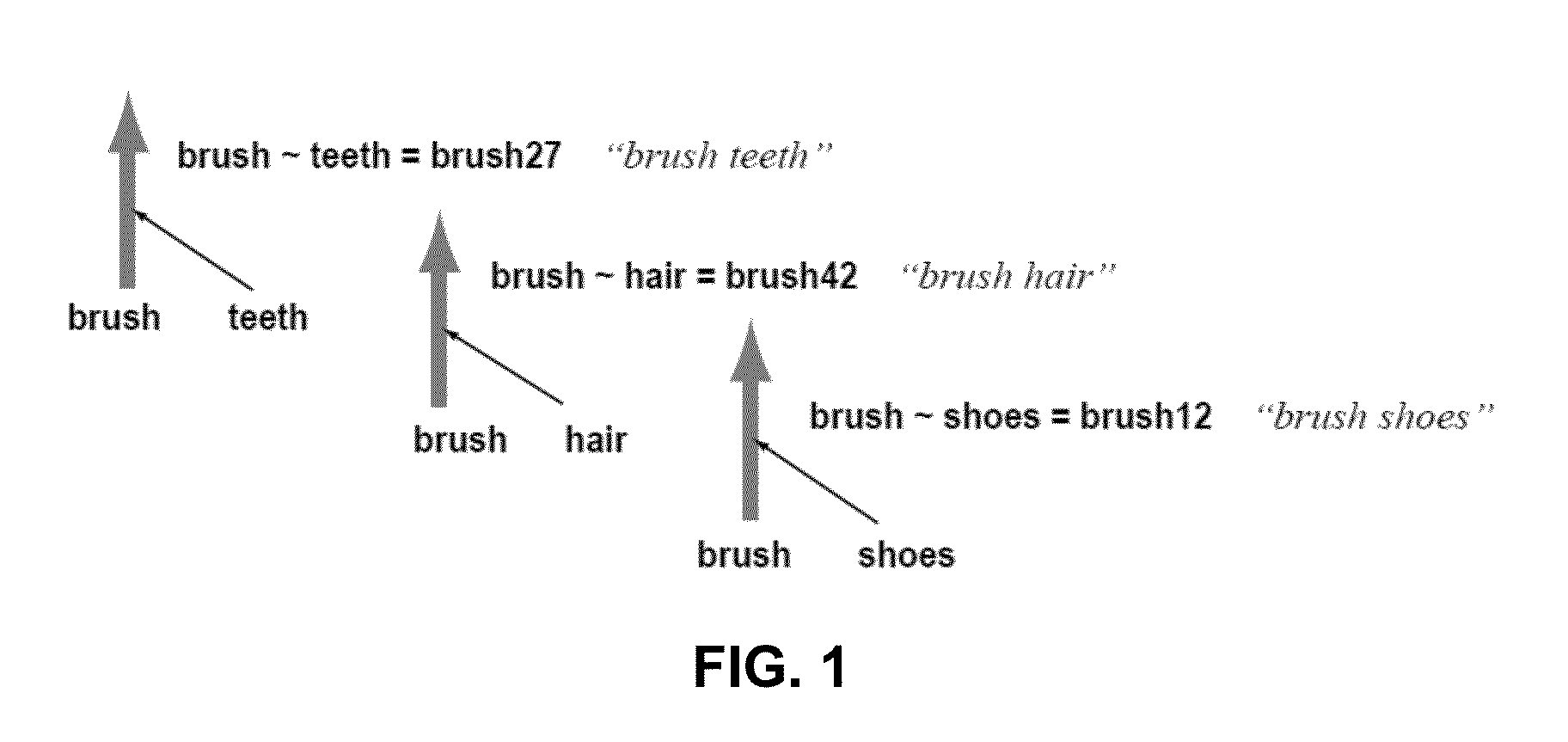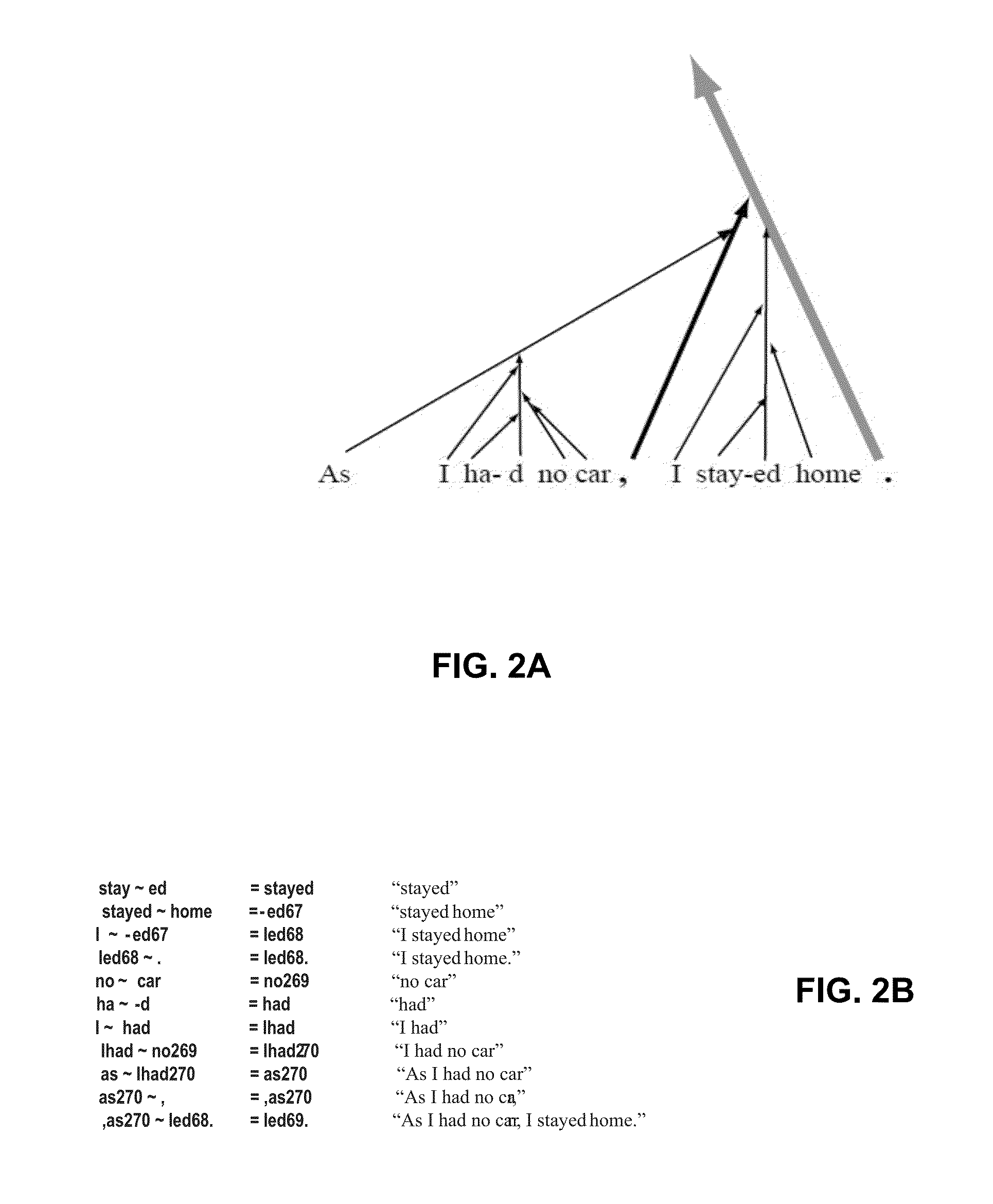In-context access of stored declarative knowledge using natural language expression
a declarative knowledge and in-context access technology, applied in the field of natural language interaction with a computer, can solve problems such as difficult language understanding and proved to be a very difficult task
- Summary
- Abstract
- Description
- Claims
- Application Information
AI Technical Summary
Benefits of technology
Problems solved by technology
Method used
Image
Examples
example processing
[0666 Device
[0667]FIG. 53 is a block diagram illustrating an example wired or wireless system 550 that may be used in connection with various embodiments described herein. For example, the system 550 may be used as, or in conjunction with, one or more of the mechanisms or processes described above, and may represent components of server(s) 110, user system(s) 130, and / or other devices described herein. The system 550 can be a server or any conventional personal computer, or any other processor-enabled device that is capable of wired or wireless data communication. Other computer systems and / or architectures may be also used, as will be clear to those skilled in the art.
[0668]The system 550 preferably includes one or more processors, such as processor 560. Additional processors may be provided, such as an auxiliary processor to manage input / output, an auxiliary processor to perform floating point mathematical operations, a special-purpose microprocessor having an architecture suitabl...
PUM
 Login to View More
Login to View More Abstract
Description
Claims
Application Information
 Login to View More
Login to View More - R&D
- Intellectual Property
- Life Sciences
- Materials
- Tech Scout
- Unparalleled Data Quality
- Higher Quality Content
- 60% Fewer Hallucinations
Browse by: Latest US Patents, China's latest patents, Technical Efficacy Thesaurus, Application Domain, Technology Topic, Popular Technical Reports.
© 2025 PatSnap. All rights reserved.Legal|Privacy policy|Modern Slavery Act Transparency Statement|Sitemap|About US| Contact US: help@patsnap.com



